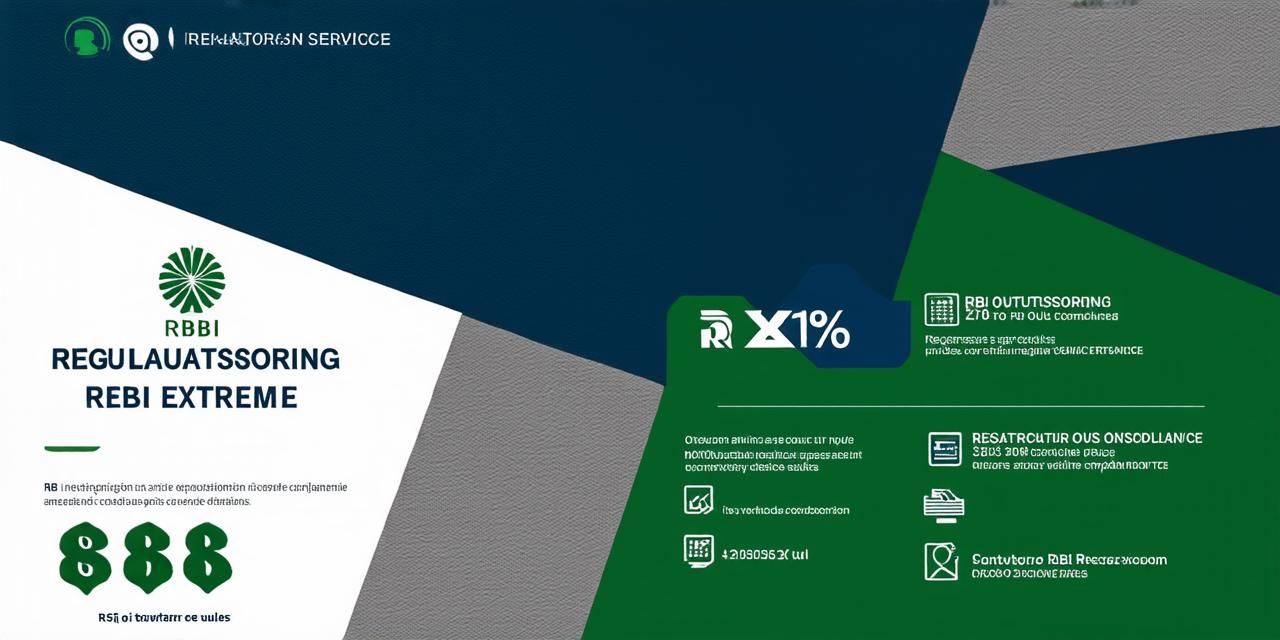Outsourcing services has become increasingly popular among businesses in India as a way to save time and money. However, before making any decisions, it is important to understand the regulations set by the Reserve Bank of India (RBI) on outsourcing services.

This article aims to explore the key regulations that businesses need to comply with when outsourcing services in India and provide real-life examples of companies that have successfully navigated these regulations.
One of the most important regulations that businesses need to comply with is the Securities and Exchange Board of India (SEBI) regulations on outsourcing services. These regulations require companies to disclose any material outsourcing arrangements in their prospectus and annual reports. This helps investors understand the risks associated with outsourcing and ensure that the company is taking appropriate measures to protect its assets.
Another key regulation that businesses need to comply with is the data privacy and security regulations set by the RBI. These regulations require companies to implement robust data protection measures when outsourcing services that involve sensitive information. This includes implementing encryption, access controls, and regular audits to detect and prevent any unauthorized access or use of data.
Businesses also need to comply with tax regulations when outsourcing services in India. For example, if a company outsources its accounting services to a third-party provider, it must ensure that the provider is registered and compliant with Indian tax laws. This includes registering for Value Added Tax (VAT) and filing regular tax returns. Failure to comply with these regulations can result in hefty penalties and legal action.
Many businesses have successfully navigated the RBI regulations on outsourcing services and gained significant benefits from outsourcing. For example, Infosys and Tata Consultancy Services (TCS) are two leading IT services providers that have implemented robust data protection measures to protect their clients’ sensitive data. By outsourcing certain functions, these companies were able to focus on their core competencies while still benefiting from the expertise and resources of a third-party provider.
To avoid any legal issues, businesses should ensure they comply with all regulations set by the RBI on outsourcing services. This includes conducting thorough due diligence on potential outsourcing partners, ensuring that they are compliant with relevant laws and regulations, and implementing appropriate data protection measures. By taking these steps, businesses can benefit from outsourcing while also protecting their assets and maintaining compliance with Indian law.
In conclusion, outsourcing services can be a valuable tool for businesses looking to save time and money. However, before making any decisions, it is important to understand the regulations set by the Reserve Bank of India (RBI) on outsourcing services. By complying with these regulations and taking appropriate measures to protect their assets, businesses can benefit from outsourcing while maintaining compliance with Indian law.
